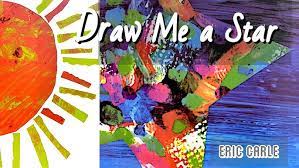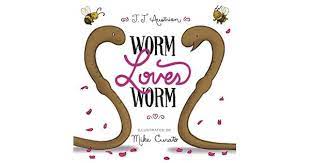As banning books became much more common throughout the country we began a discussion with older students based on reading aloud a book called The Day the Book Was Arrested by Nat Hentoff. In the book, a parent objected to the reading of Huckleberry Finn due to both the racist language used to call Jim, who along with Huck had run away and floated down the Mississippi River and the scenes of their nudity on the raft, at times, as they traveled. The principal of the school assumes the authority to ban the book and is met with resistance by the librarians. Throughout the process, students in the school also become involved.
The book elicited a lot of discussion as it was read. Who gets to decide what books are available for students to read? Who gets to use books with questionable topics in their classroom? Should there be a separate part of the library that only certain students have access to with permission from their parents?
As the book ended, we brought in our middle group of children to join with the older ones in hearing, reading and discussing young children’s picture books, listed by PEN America, that had been banned in many states. The teacher read several of the books, some of which were easy to read and others that touched on difficult subjects. They were picture books concerning race, ethnicity and religion, WWII, and gender identity.
An early book was Draw Me a Star written and illustrated by Eric Carle. As we read, the students noticed that a picture of a nude man and woman drawn by Carle was covered by paper clothes. It was a perfect moment. Here was an example of censorship, but who was doing the censorship? We ended up, as a class, composing a letter to the library to get further information. It took a while, but the Jamesville Dewitt library staff sent a reply letter to us, and eventually, toward the end of the project we were able to have them come and address the class.
Below, is the discussion which ensued after reading Draw me a Star.

DRAW ME A STAR BOOK TALK
*Who is making these pictures/decisions? Everyone has an imagination. All are different so not because of imagination itself.
*There is a sequence in the book—a relationship between one step and another….making a whole scene.
*Why is this book banned? It’s nice…maybe because they forgot a rainbow.
*The star that is being shown how to draw…maybe this is a symbol for some people for Satan.
*The author/artist is showing how people live or were created. Some people think differently and may not like this sequence.
*Maybe because people make stars differently.
*Some people don’t like people to imagine this way of things being created.
*The artist is playing God and for Christians they might not like someone “playing God”.
*Maybe it was banned because of nudity –maybe because of the age of who would read it or should read it.
*For younger people it might be better to see nudity because they are just learning about their body.

After one book, The Butterfly by Patricia Polacco, it was clear we needed to have a discussion on why we read books that are difficult to hear. Below is a discussion that the class had after the first day of reading the book.
WHY DO WE READ THESE BOOKS THAT ARE HARD TO LISTEN TO OR SAD?
Kyla – Why is this book banned when it has so much insight into real history?
Jojo- I forgot it was banned.
Auggie- Exactly, why? People don’t want kids to hear about terrible things. Unguided kids could lean on the wrong side.
AlexO. – maybe we need older kids and adults to understand.
We read these stories to try and learn what happened.
Kyla – how women and black people got some of their rights.
What we can do better so we don’t repeat history’s mistakes.
Stuart – we remember it like in Wilmington (in 1895)
Amaar – we repeat war 100 times
Auggie – There is no point in war. A little bit of gold is better than swords. History is a bunch of people repeating dumb mistakes of those before.
Stuart – WWI and WWII were mistakes because a lot of people died that didn’t have to.
Phoenix – some wars are for freedom. It can be ok or not ok because some got to be free. Maybe it could have been negotiated.
Auggie – (clarifying) A mistake equals a bad decision/something that could have been avoided. It is not an accident.
Isaac- how can we prevent death in war…play Rock, Scissors, Paper or some other means.
Alex O. – The Revolutionary War and the Civil War were for freedom.
Kyla –There is no reason for war..the solution = We have too many nukes, get rid of the nukes.
Jojo – The solution is no fighting – do like the old times – make a contest.
Auggie –When the war ends, they sign a thing, so do the thingy treaty first.

As a class, we read a few more books: Worm loves Worm and Jabari Jumps. Then students were asked to read 2-3 more of the many books we had gotten from the library. They were to pick one as primary, begin an essay on why it might have been banned, should books be banned or restricted, if so, by what process. Then they needed to choose another book or two to compare and contrast with their main book and consider the authors’ intent. During snacks, students share their works in progress and could ask for friends’ opinions and thoughts when they had questions about their essay.